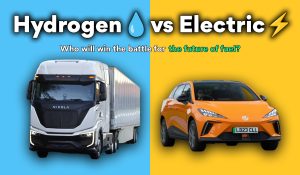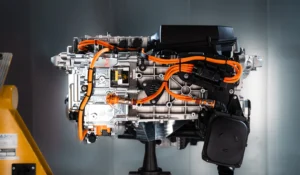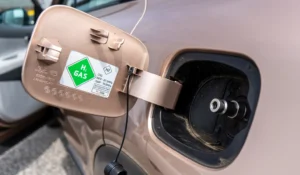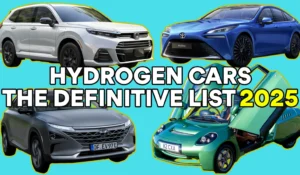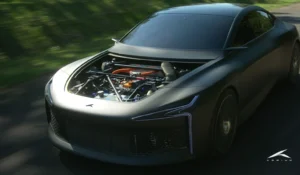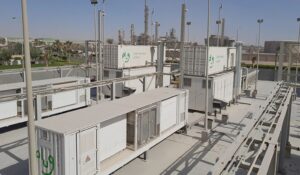Electric Trucks: A disaster waiting to happen?
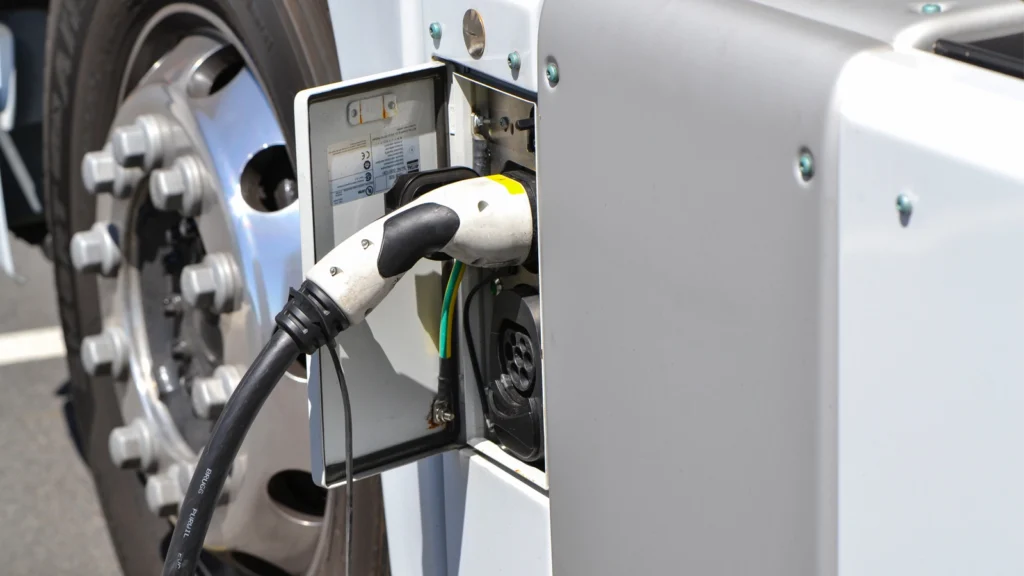
As industries around the world move toward a greener future, trucking is facing a unique set of challenges.
The rise of battery electric vehicle (BEV) trucks has sparked debate, but as we delve deeper into the issues, this solution may not be as sustainable, or practical, as it seems at first glance.
Instead, could hydrogen-powered trucks offer a more balanced, efficient and greener way forward for the industry?
Disclaimer: Before we start, I thought it worth mentioning that we like electric drivetrains. They are highly efficient, quiet (which is tremendous depending on the use-case), and there is nothing much to go wrong. Hydrogen fuel cell vehicles – which we are very fond of – run on electric drivetrains. We also quite like battery electric cars and bikes, again, depending on the use-case. They are great for urban mobility, but trucking is a whole nother beast, as we will delve into here.
The challenge with battery electric trucks
Weight and efficiency issues
Trucks face a dilemma similar to the “tyranny of the rocket equation”.
Batteries are heavy, very heavy, and you need a solid capacity to handle the rigours of the weight you need to pull behind the trucks – the more power needed, the more batteries, the more power you need to pull the weight of the batteries you have just added, leading to diminishing returns.
Battery electric (BEV) trucks, while seemingly green, are a prime example of this issue. With the maximum weight limited in Europe to 44 tonnes, 5-10 tonnes can easily be made up of batteries alone.
For trucking companies, you want to have the lightest possible truck, and have the most amount of goods on the back – the stuff that is actually making you money.
Every kilogram devoted to batteries is a kilogram lost for payload, meaning less profitability per trip.
Cost implications
This adds strain to an industry already working on tight margins, and, believe me – that added cost is not coming out of their pocket – it’s coming out of the pockets of you and I when we go and buy food, toilet roll, wine, cheese, hire a plumber, go to the pub, order from Amazon, get a takeaway, etc etc.
Operational drawbacks
Beyond cost, BEVs face critical operational limitations. For one, their range is reduced compared to diesel trucks. More importantly, recharging takes significantly longer than refuelling.
In Europe, where truck drivers are limited to nine hours of work per day, every minute spent waiting for a charge cuts into valuable driving time, adding to operational costs and loss of productivity.
Compounding this issue is the fact that governments are implementing stricter emissions regulations.
Older, arguably more reliable diesel trucks are increasingly penalised for their environmental impact. Without the availability of hydrogen alternatives, trucking companies will be forced to adopt BEVs, regardless of the significant drawbacks.
Grid sustainability concerns
One of the most pressing concerns surrounding BEV adoption is the impact on national power grids.
Last week I spoke to an engineer who had done a study with one of the UK’s largest trucking fleets – he couldn’t say which for confidentiality – but somewhere on a scale comparable to someone like Eddie Stobart.
Unbelievably, they found out that replacing their diesel fleet with battery electric trucks, just this one company’s fleet, would require two-thirds of the UK’s entire grid capacity, every night, just to refuel the trucks ready for the next day. Read that bit again. One third of the UK’s grid capacity to charge ONE company’s fleet.
How on earth could the entire industry switch to electric without collapsing national infrastructure?
Inflation and productivity impacts
BEV trucks not only have a shorter range and longer charging times but also require significant resources to manufacture due to their massive batteries.
Need I mention the coloured supply chain of battery manufacturing?
The case for hydrogen
Hydrogen combustion engines as a viable alternative?
Hydrogen combustion engines could offer a more practical alternative to BEV trucks, providing a quicker and more efficient path to reducing emissions in the trucking sector.
For one, the existing manufacturing infrastructure for engine blocks, heads, and other key components can easily and simply be adapted to make the same parts for hydrogen without requiring a complete overhaul.
Perhaps even more crucial is the impact on the workforce.
Unlike BEV transitions, which may require retraining or even replacing truck mechanics, hydrogen combustion engines use technology that most mechanics are already familiar with.
Hydrogen combustion produces mostly water vapor and small amounts of NOx, which can be managed easily using Euro 6 DPF filters and AdBlue, technology that’s been in use for years on diesels.
Advantages of hydrogen combustion in trucks
Hydrogen combustion offers a range of operational benefits:
- First, refuelling times are nearly identical to those of diesel trucks – around five minutes – so there is no significant loss of productivity.
- Second, hydrogen combustion provides the same range as diesel, meaning no trade-off in distance covered. Importantly, this comes with zero carbon emissions.
- Setting up hydrogen refuelling infrastructure is also straightforward – so long as you have the demand.
- Stations can be installed at existing truck depots, stops, and along major routes, enabling a seamless transition without requiring major changes to the current logistics network.
The future: Hydrogen Fuel Cell trucks
Transitioning to Fuel Cells
While hydrogen combustion offers an immediate solution, hydrogen fuel cell technology would provide the most efficient future of zero-emission trucking.
These trucks combine hydrogen propulsion with highly-efficient electric motors, offering all the advantages of BEVs without the downsides.
Fuel cell trucks provide quick refuelling, just like combustion engines, but with the added benefits of lighter vehicles, allowing for greater payload capacity within the 44-tonne limit.
Additional features, like regenerative braking and silent operation, make hydrogen fuel cell trucks a smooth and efficient option for long-haul logistics.
Conclusion: the pragmatic path forward
As the world works toward achieving net-zero goals, the trucking industry must also evolve.
While BEVs may seem like the go-to solution, their inherent limitations make them unsustainable for widespread use in logistics.
Hydrogen, on the other hand, offers a realistic and efficient alternative, practical in the real world, whether through combustion or fuel cells.
If trucking companies are forced to abandon older diesel trucks, converting fleets to hydrogen could provide the perfect balance between sustainability, efficiency, and practicality.
By investing in hydrogen technology now, we can create a future where freight transport is not only cleaner but also economically viable, without the trade-offs associated with BEV trucks.
So, if we’re serious about saving the planet without bankrupting logistics companies or collapsing the national grid, perhaps it’s time to give hydrogen the green light.


